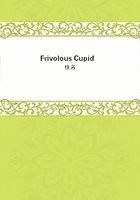
第21章
At last Newhaven made a move. At breakfast, on Wednesday morning, he announced that, reluctant as he should be to leave Poltons Park, he was due at his aunt's place, in Kent, on Saturday evening, and must, therefore, make his arrangements to leave by noon on that day. The significance was apparent. Had he come down to breakfast with "Now or Never!" stamped in fiery letters across his brow, it would have been more obtrusive, indeed, but not a whit plainer. We all looked down at our plates, except Jack Ives. He flung one glance (I saw it out of the corner of my left eye) at Newhaven, another at Trix; then he remarked kindly:
"We shall be uncommonly sorry to lose you, Newhaven."Events began to happen now, and I will tell them as well as I am able, supplementing my own knowledge by what I learned afterward from Dora--she having learned it from the actors in the scene.
In spite of the solemn warning conveyed in Newhaven's intimation, Trix, greatly daring, went off immediately after lunch for what she described as "a long ramble" with Mr. Ives. There was, indeed, the excuse of an old woman at the end of the ramble, and Trix provided Jack with a small basket of comforts for the useful old body; but the ramble was, we felt, the thing, and I was much annoyed at not being able to accompany the walkers in the cloak of darkness or other invisible contrivance. The ramble consumed three hours--full measure. Indeed, it was half-past six before Trix, alone, walked up the drive. Newhaven, a solitary figure, paced up and down the terrace fronting the drive. Trix came on, her head thrown back and a steady smile on her lips. She saw Newhaven; he stood looking at her for a moment with what she afterward described as an indescribable smile on his face, but not, as Dora understood from her, by any means a pleasant one.
Yet, if not pleasant, there is not the least doubt in the world that it was highly significant, for she cried out nervously:
"Why are you looking at me like that? What's the matter?"Newhaven, still saying nothing, turned his back on her, and made as if he would walk into the house and leave her there, ignored, discarded, done with. She, realizing the crisis which had come, forgetting everything except the imminent danger of losing him once for all, without time for long explanation or any round-about seductions, ran forward, laying her hand on his arm and blurting out:
"But I've refused him."
I do not know what Newhaven thinks now, but I sometimes doubt whether he would not have been wiser to shake off the detaining hand, and pursue his lonely way, first into the house, and ultimately to his aunt's. But (to say nothing of the twenty thousand a year, which, after all, and be you as romantic as you may please to be, is not a thing to be sneezed at) Trix's face, its mingled eagerness and shame, its flushed cheeks and shining eyes, the piquancy of its unwonted humility, overcame him. He stopped dead.
"I--I was obliged to give him an--an opportunity," said Miss Trix, having the grace to stumble a little in her speech. "And--and it's all your fault."
The war was thus, by happy audacity, carried into Newhaven's own quarters.
"My fault!" he exclaimed. "My fault that you walk all day with that curate!"Then Miss Trix--and let no irrelevant considerations mar the appreciation of fine acting--dropped her eyes and murmured softly:
"I--I was so terribly afraid of seeming to expect YOU."Wherewith she (and not he) ran away lightly up the stairs, turning just one glance downward as she reached the landing.
Newhaven was looking up from below with an "enchanted" smile--the word is Trix's own; I should probably have used a different one.
Was then the curate of Poltons utterly defeated--brought to his knees, only to be spurned? It seemed so; and he came down to dinner that night with a subdued and melancholy expression.
Trix, on the other hand, was brilliant and talkative to the last degree, and the gayety spread from her all around the table, leaving untouched only the rejected lover and Mrs. Wentworth; for the last named lady, true to her distinguishing quality, had begun to talk to poor Jack Ives in low, soothing tones.